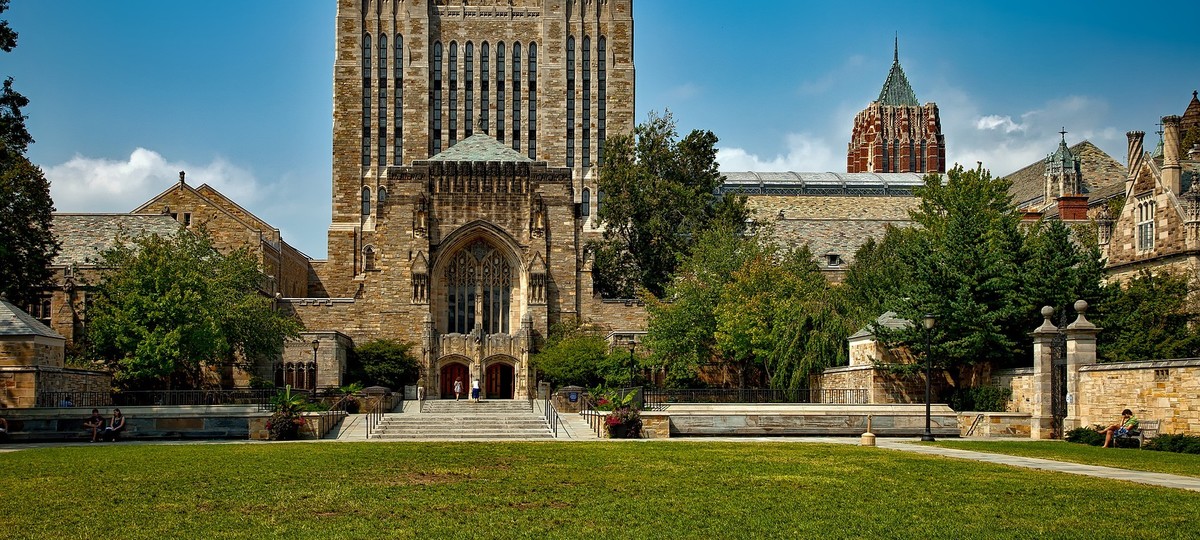
On Sunday, I went to my local Queens bakery at 9, 11 and 2, and each time, I sat across from a friendly, open 18-year-old. These New York City students shared their hopes, dreams and what they do in their free time. One researches drone strikes in Somalia. Another teaches the disabled to ski. A third measures the size and shape of snake skulls.
Typical — for this group. These are applicants for early admission to Yale University.
Me, I'm an alumni interviewer. That means I help lighten the Yale admissions department's load by volunteering to assess a half-dozen candidates each year. This is my 15th or 16th go-round, and it always gives me great delight.
This year, however, it also gave me pause. That's because another alum, Ben Orlin, recently wrote a piece in the Los Angeles Times titled "Why I won't reenlist as a Yale alumni interviewer."
His beef is that "the whole process is so spectacularly insane that participating in it — even in such a peripheral role — feels like watching spiders crawl out of my tear ducts."
The insanity is not the kids; they're great. Nor is it Yale; it can't take everyone. The insanity is the giant disparity between the number of stunning applicants and the number who get in. "For every bed in the freshman dorms, 20 kids are lining up, at least five of whom are high school rock stars," wrote Orlin. "From that murderer's row, admissions officers face the impossible task of picking just one. There's no right answer."
He feels for all the students who have done so much and are likely to take their rejection personally. (Don't we all?) What these kids can't know is that they are just as amazing as the ones who get the thick envelopes but they may be the 15th top debater who also spent a year teaching calculus in Kenya. No school needs 15 of the same thing. Thus, some get in but others get bumped for a dancer/sculptor/beekeeper from Utah or a spearfisher (with perfect SATs) from Spain.
So on Sunday, as I spoke with the hopefuls, I felt compelled to also mention the Ghosts of Applicants Past.
There was the girl so fascinated by rhetoric that she had learned Ancient Greek. She wanted to read the first philosophers in their own words so she could describe such debating techniques as saying, "I won't mention the defendant's past as a thief, because that is not relevant to this case." She loved the way information got sneakily embedded. But she also loved neuroscience, so she was doing lab research on Alzheimer's disease. Her modest little goal was to figure out whether how information gets into our brains has any relation to how it leaks out.
She did not get in.
Another year, I met a young man from a public high school who admitted that during middle-school computer class, he would hack a friend's screen to suddenly show cartoons when the teacher was walking past. By the time he was in high school, he'd started a web design business. Senior year, he got an internship at a teaching hospital. There he came up with a new, cheap way to dissolve "bad" cholesterol. Ten medical school professors came to hear his lecture. This kid applied to Yale and MIT.
I hope he got into the latter, because he did not get into Yale.
Meantime, a young man I had a hard time interviewing because he had so little to say did make it. I gather that he was spectacular at math. But he got lost finding his way to our interview.
Which is not to say Yale gets it wrong. It took many of the students I've recommended. But Orlin got it right, too: Ivy League admissions are an opaque process, not to be taken personally. The good news is that by the time students think they're Yale material, they usually are.
Even if they don't get in.
Comment by clicking here.


 Contact The Editor
Contact The Editor
 Articles By This Author
Articles By This Author